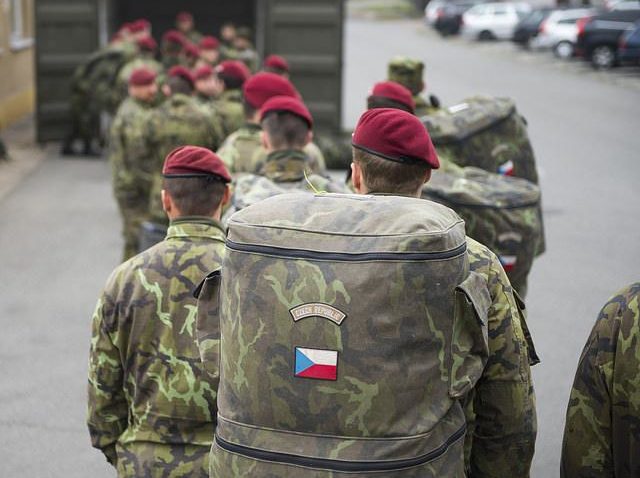Compiled by: Hristo Voynov and Kristijan Fidanovski
Each week we bring you the ten most important pieces of news from Eastern Europe.
- Questionable ruling in Moscow’s Ukrainian Library case
The former director of Moscow’s Ukrainian Literature Library has been convicted of inciting ethnic hatred in a case most see as politically motivated due to the tensions between Ukraine and Moscow. The books in question were written by Ukrainian nationalists, however police have been accused of planting some of the books.
- NATO military exercises
The drills, called Noble Jump 2017, test the Very High Readiness Joint Task Force troops from all over NATO to rapidly enter Bulgaria, Greece, and Romania. This adds to the tension in Eastern Europe in the face of other NATO military drills and their perceived threats to Russia.
- Macedonia’s ex-Health Minister survives assassination attempt
On Tuesday, Macedonian ex-Health Minister Nikola Todorov was attacked by an armed 57-year-old man, exactly when he was supposed to hand his office over to his successor. The attacker’s motivation was the death of his 9-year-old granddaughter, who had died two years ago while waiting for the Ministry of Health to approve her transfer to another country for treatment. The attacker fired two bullets, both of which missed Todorov.
- Romania ratifies the Paris Accord
This occurred on the same day that Trump withdrew from the agreement to tackle climate change. It gives hope to the supporters of the accord, though Romania’s impact on global warming is but a small dent compared to the effect of the US’ withdrawal.
- EU loosens visa restrictions for Ukrainian citizens
Under the new rules, Ukrainian citizens will be able to spend up to 90 days in a 180 day period visa free within certain EU countries. This is part of the tightening of relations between Ukraine and the EU over the past few years, which is headed towards closer ties but unlikely to lead to Ukraine’s entry into the Union.
- Representatives from 50 countries gathered in Bosnia to discuss country’s progress
The gathering was a standard biannual meeting to evaluate the work of the OSCE’s Office of the High Representative. Some of the countries which sent representatives include the US, Russia, and most EU countries.
- Romania’s President Iohannis first Balkan leader to visit Trump
The visit is scheduled for June 9. Romania is one of the many NATO members who fail to meet the 2% defence budget requirement, much to Trump’s dismay. Most Balkan countries were either neutral in the US presidential elections or supported Hillary Clinton, with Serbia being the only one that appeared to lean towards Trump, mainly due to the NATO bombing of Belgrade during Bill Clinton’s presidency.
- Macedonia’s new Foreign Minister to visit Athens
With his experience as Macedonia’s negotiator in the name dispute with Greece, Nikola Dimitrov’s appointment last week as Foreign Minister was largely interpreted as an indication of the willingness of new government to make headway on the dispute. These expectations were strengthened by Dimitrov’s announcement that he would hold his very first bilateral meeting with his Greek counterpart Nikos Kotzias. The blockade in the negotiations over the name dispute cost Macedonia NATO membership in 2008, when Greece vetoed its accession.
- Russian diplomatic expulsion
When Moldova expelled 5 Russian diplomats, Russia responded by expelling 5 Moldovan and 2 Estonian diplomats. This was followed by the refused entry of the Deputy Head of the Russian Government’s Analytical Center on his way to the Moldovan breakaway region of Transnistria. Similarly, Montenegro banned 149 Russian and Ukrainian citizens associated with the Russian annexation of Crimea.
- Germany has “Marshall Plan” for Western Balkans
According to the Serbian daily “Vecernje novosti”, Germany has prepared a “special financial program” for the Western Balkan countries. Allegedly, the plan has the twofold purpose of keeping support for EU membership high and balancing against Russia’s increasing attempts to gain influence in the region.


0 comments